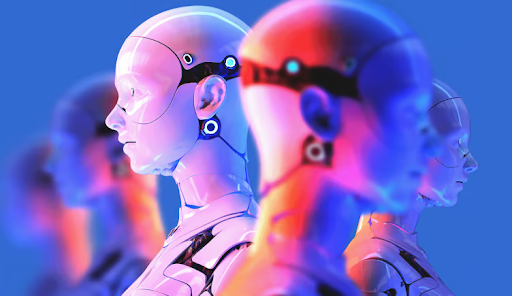Many tech startups are developing and bringing to market remarkable humanoid robots as at least a partial solution for labor shortages stunting economic growth in the US and other highly developed economies.
The U.S Chamber of Commerce notes that domestically, this shortage was in part caused by the Great Resignation of 2021, when 47 million workers quit their jobs. Most of these workers found new homes, and now employers are finding it difficult to find labor.
While many headlines focus on tech layoffs at companies such as Google and Twitter, manufacturing lost more than 1.4 million jobs during the pandemic. In the time since, manufacturers have struggled to find entry level talent in addition to skilled workers.
The problem is not unique to the US. Japan is also facing a labor shortage and the issue is tied deeply with the country’s population crisis. People are living longer, and couples are putting off having families. Prime Minister Fumio Kishida announced in January that the government is looking for solutions to the declining birth rate, even though previous policies have failed.
An economy needs workers to grow. Since there are too few human workers, some startups are turning towards humanoid robots in order to solve the labor crisis.
Last Friday, Figure, a robotics company, came out of stealth mode with a plan to make 5’6” humanoid robots. They released the commercial below, along with their master plan:
In their master plan, they note labor shortages, as well as unsafe and undesirable jobs. They note the possibility of billions of humanoid workers around the world, in industries including manufacturing, home healthcare, and caring for the elderly. They also note the possibility of space exploration and the need to use humanoids to construct buildings on other planets.
The company was founded by Brett Adcock. After growing up on a farm in Illinois, at the age of 26 he founded Vettery, a hiring platform that utilized machine learning to vet candidates for tech jobs. He sold the company for $110M.
He then founded Archer, a company developing electric vertical takeoff aircraft for urban air mobility. The company IPO’d at almost $3B.
On his personal website, he states, “I believe Figure has the potential to be one of the biggest, most impactful companies on the planet.”
There are several notable startups in the space. Agilie Robotics already has a prototype humanoid robot for warehouses and has raised hundreds of millions of dollars. They will showcase a new version at ProMat 2023 later in March.
Beomni, a humanoid robot from Beyond Imagination, contains an artificially intelligent brain and also allows for humans to step into virtual reality and take control.
Atlas, from Boston Dynamics, might be the most advanced humanoid robot, It recently demonstrated its ability to do Parkour. The company also has Spot, a dog-like robot that can be used to collect data and for inspections. It looks eerily similar to the robot in Black Mirror’s Metalhead episode.
Engineered Arts has developed several products, including quinn (spelled with a lower case Q), a robot which can be used at customer service desks. The company also builds robots for entertainment and has created RoboThespian, an actor with the ability to assume different personalities.
While humanoid robots are one thing, the space for manufacturing robots is also quite crowded. Amazon is a notable leader in the industry, using an array of robots to manage inventory in its warehouses. Their most recent robot, Sparrow, can select individual products from inventory using AI computer vision.
Robots are playing an increasingly bigger role meeting our need for more workers and as to free human workers from manual labor that causes bodily damage over time. It’ll be interesting to see where Figure fits in, though they have a lot of catching up to do in an already crowded industry.
Mike Degen is a FinTech Columnist at Grit Daily. His interests include business, technology, and policy.
Credit: Source link


Comments are closed.